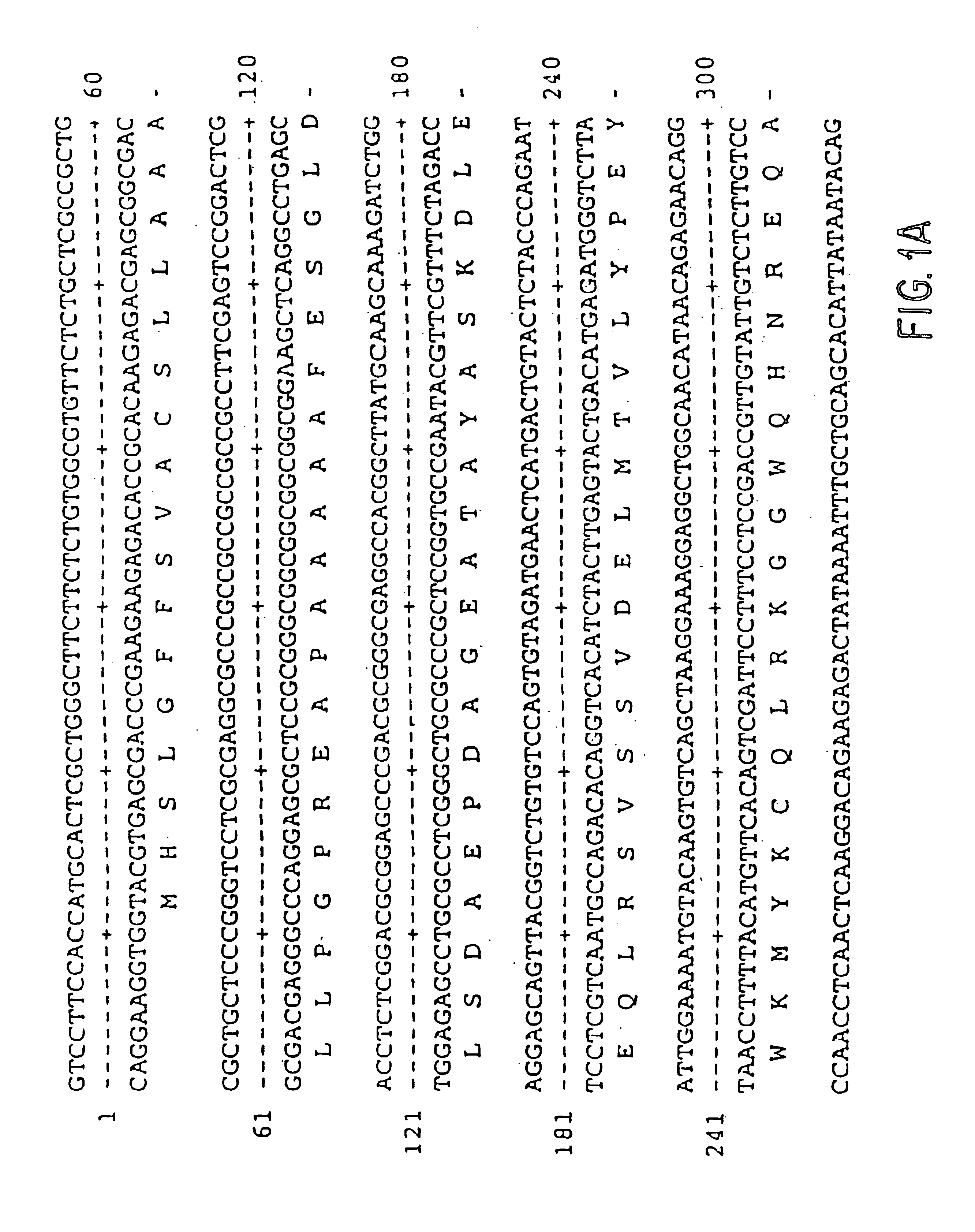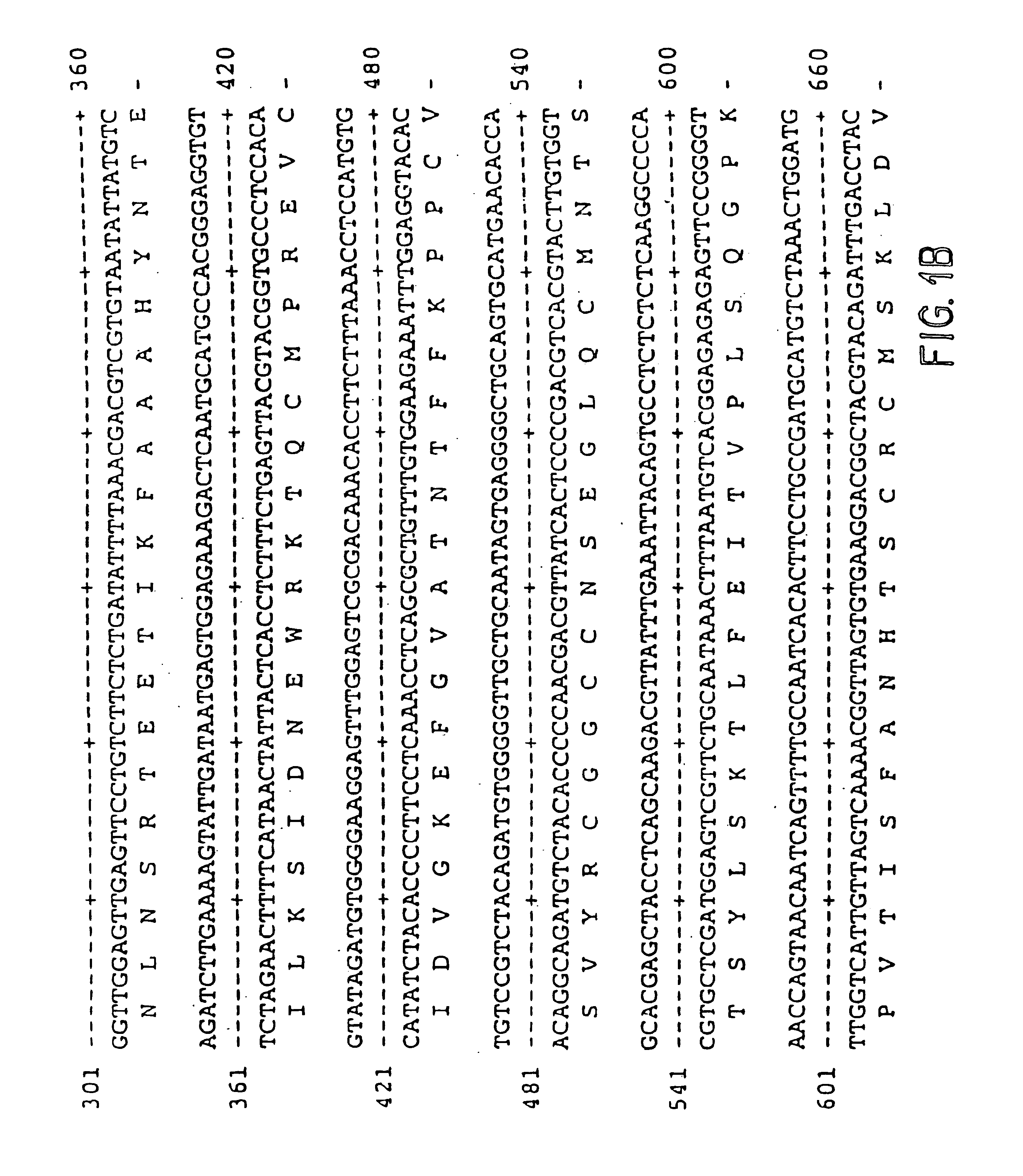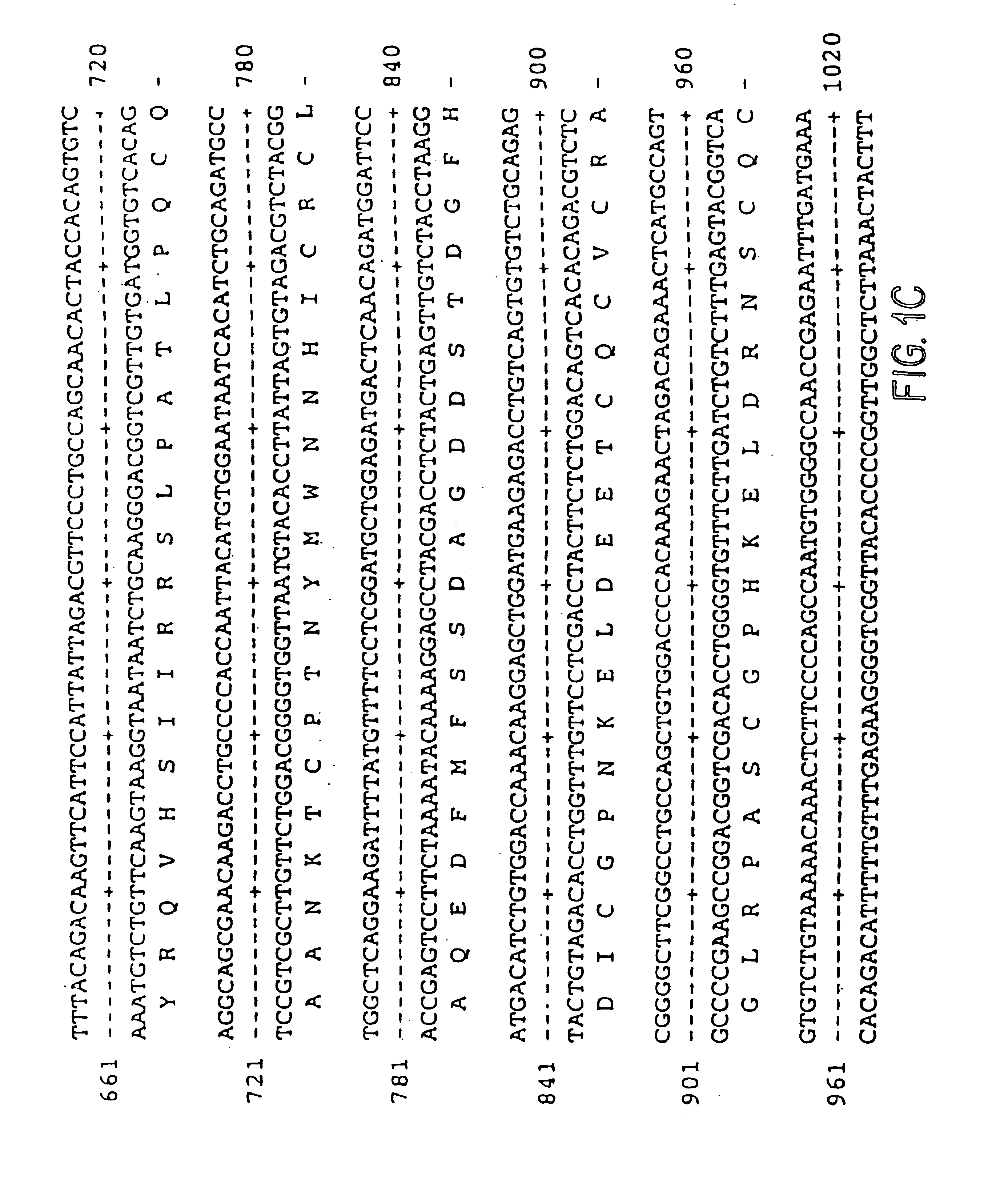Use of vascular endothelial growth factor to treat photoreceptor cells
- Summary
- Abstract
- Description
- Claims
- Application Information
AI Technical Summary
Benefits of technology
Problems solved by technology
Method used
Image
Examples
example 1
Expression Pattern of VEGF-2 in Human Tissues and Breast Cancer Cell Lines
[0455]Northern blot analysis was carried out to examine the levels of expression of VEGF-2 in human tissues and breast cancer cell lines in human tissues. Total cellular RNA samples were isolated with RNAzol™ B system (Biotecx Laboratories, Inc.). About 10 mg of total RNA isolated from each breast tissue and cell line specified was separated on 1% agarose gel and blotted onto a nylon filter, (Sambrook et al., Molecular Cloning: A Laboratory Manual, Second Edition, Cold Spring Harbor Laboratory, Cold Spring Harbor, N.Y. (1989)). The labeling reaction was done according to the Stratagene Prime-It kit with 50 ng DNA fragment. The labeled DNA was purified with a Select-G-50 column from 5 Prime÷3 Prime, Inc (Boulder, Colo.). The filter was then hybridized with a radioactive labeled full length VEGF-2 gene at 1,000,000 cpmL / ml in 0.5 M NAPO4 and 7% SDS overnight at 65° C. After washing twice at room temperature and ...
example 2
Expression of the Truncated Form of VEGF-2 (SEQ ID NO:4) by in vitro Transcription and Translation
[0457]The VEGF-2 cDNA was transcribed and translated in vitro to determine the size of the translatable polypeptide encoded by the truncated form of VEGF-2 and a partial VEGF-2 cDNA. The two inserts of VEGF-2 in the pBluescript SK vector were amplified by PCR with three pairs of primers, 1) M13-reverse and forward primers; 2) M13-reverse primer and VEGF primer F4; and 3) M13-rcverse primer and VEGF primer F5. The sequence of these primers are as follows.
M13−2 reverse primer: 5′-ATGCTTCCGGCTCGTATG-3′ (SEQ ID NO: 11)
[0458]This sequence is located upstream of the 5′ end of the VEGF-2 cDNA insert in the pBluescript vector and is in an anti-sense orientation as the cDNA.
[0459]A T3 promoter sequence is located between this primer and the VEGF-2 cDNA.
[0460]M13−2 forward primer: 5′GGGTTTTCCCAGTCACGAC-3′ (SEQ ID NO: 12)
[0461]This sequence is located downstream of the 3′ end of the VEGF-2 cDNA in...
example 3
Cloning and Expression of VEGF-2 Using the Baculovirus Expression System
[0466]The DNA sequence encoding the VEGF-2 protein without 46 amino acids at the N-terminus, see ATCC No. 97149, was amplified using PCR oligonucleotide primers corresponding to the 5′ and 3′ sequences of the gene:
[0467]The 5′ primer has the sequence TGT AAT ACG ACT CAC TAT AGG GAT CCC GCC ATG GAG GCC ACG GCT TAT GC (SEQ ID NO: 14) and contains a BamH1 restriction enzyme site (in bold) and 17 nucleotide sequence complementary to the 5′ sequence of VEGF-2 (nt. 150-166).
[0468]The 3′ primer has the sequence GATC TCT AGA TTA GCT CAT TTG TGG TCT (SEQ ID NO: 15) and contains the cleavage site for the restriction enzyme XbaI and 18 nucleotides complementary to the 3′ sequence of VEGF-2, including the stop codon and 15 nt sequence before stop codon.
[0469]The amplified sequences were isolated from a 1% agarose gel using a commercially available kit (“Geneclean,” BIO 101, Inc., La Jolla, Calif.). The fragment was then dig...
PUM
| Property | Measurement | Unit |
|---|---|---|
| concentrations | aaaaa | aaaaa |
| concentrations | aaaaa | aaaaa |
| pH | aaaaa | aaaaa |
Abstract
Description
Claims
Application Information
 Login to View More
Login to View More - R&D
- Intellectual Property
- Life Sciences
- Materials
- Tech Scout
- Unparalleled Data Quality
- Higher Quality Content
- 60% Fewer Hallucinations
Browse by: Latest US Patents, China's latest patents, Technical Efficacy Thesaurus, Application Domain, Technology Topic, Popular Technical Reports.
© 2025 PatSnap. All rights reserved.Legal|Privacy policy|Modern Slavery Act Transparency Statement|Sitemap|About US| Contact US: help@patsnap.com



